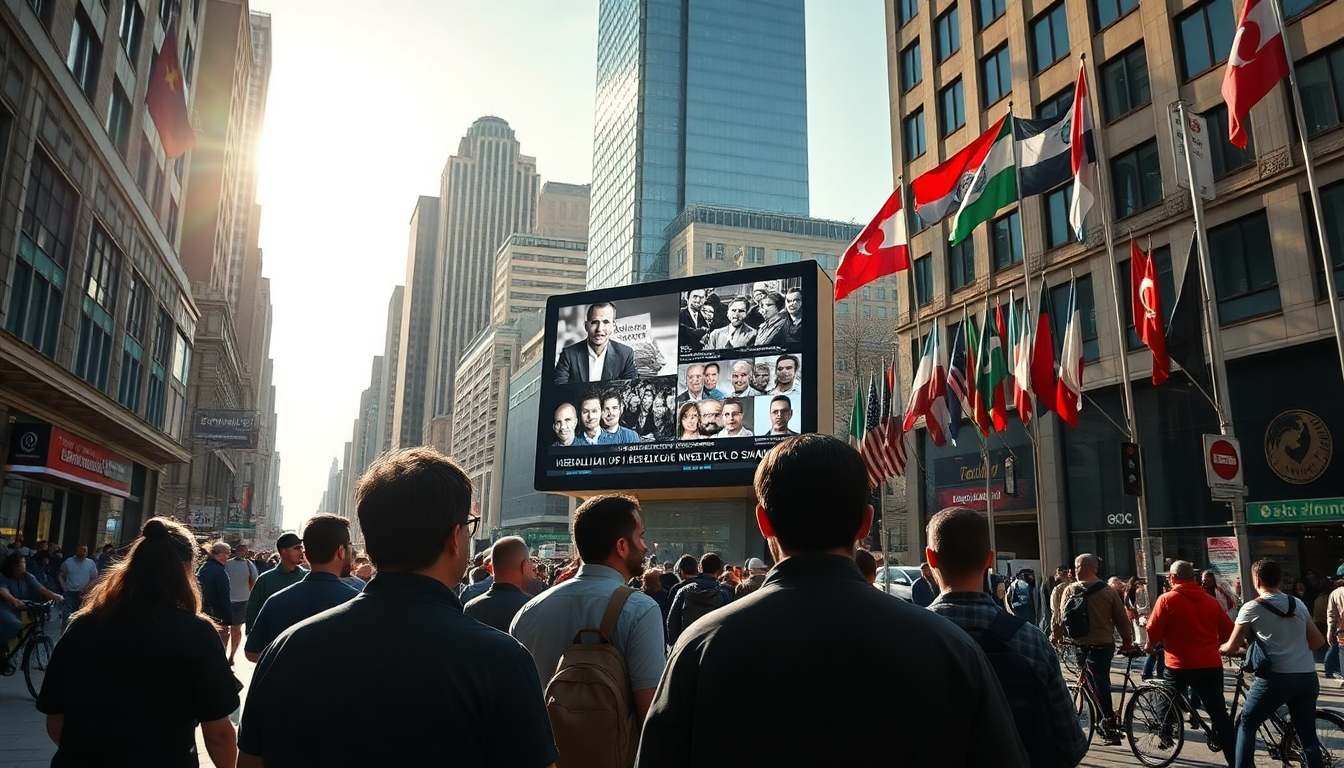Table of Contents
In a world where information shapes how we see things, the way the media portrays groups like Hezbollah has sparked a lot of debate. Have you ever wondered how the narratives presented by major news outlets influence public perception, especially regarding organizations labeled as terrorist groups? This article dives into the recent coverage of Hezbollah, exploring how these narratives can sway public opinion and their broader implications for international relations.
Media Representation: A Double-Edged Sword
A recent article from a leading news agency has stirred up quite a bit of controversy. Many commentators pointed out that the piece depicted Hezbollah members not as terrorists, but as people grappling with hardship and suffering.
But what does this nuanced portrayal really mean? Critics argue that it risks distorting our understanding of the group’s actions and ideology. When narratives humanize individuals engaged in violence, do they unintentionally shift the focus away from the real issues at hand?
For instance, the article shared personal stories of individuals injured during a covert military operation against Hezbollah, painting them as victims of an unjust attack.
While these personal accounts can tug at our heartstrings, they can also cloud the complexities of the situation, including the motivations and actions of Hezbollah itself. The danger here lies in oversimplifying a multifaceted conflict, where one side’s actions might be portrayed without the essential context of their history and impact.
Moreover, the language used in these reports often reflects a broader trend in media coverage, where terms like “militant group” or “political party” take precedence over “terrorists.” How does this change in terminology affect our perceptions? It can make it easier for the public to sympathize with those who commit violent acts under the banner of political struggle.
This raises ethical questions about the responsibility of media outlets in shaping narratives that can influence both domestic and international opinions.
The Impact of Media Narratives on Public Perception
The way Hezbollah and similar groups are portrayed in the media can profoundly affect how we understand conflict.
When reports highlight the struggles of individuals linked to organizations labeled as terrorists, they risk creating a narrative that humanizes these individuals while glossing over the larger implications of their actions. Could this lead to a skewed understanding of the conflict, where one side receives empathy that isn’t extended to the other?
For example, when news outlets report on injuries sustained by Hezbollah fighters without mentioning their involvement in terrorist activities, it can create a disconnect. This sets the stage for a narrative that positions Hezbollah as a legitimate political entity rather than a group that engages in violence against civilians. As a result, the public might find themselves more sympathetic to their cause, complicating efforts to combat terrorism and promote peace in the region.
Additionally, such portrayals can embolden groups like Hezbollah, giving them a platform to further their agenda under the guise of victimhood. How does this impact policymakers who must navigate a landscape shaped by public perceptions influenced by media representation? It certainly complicates the narrative surrounding the conflict.
Ethical Considerations for Journalists
As media professionals grapple with the complexities of reporting on sensitive issues, the ethical considerations must always come first. Journalists hold the responsibility to provide accurate and balanced coverage that reflects the realities of a situation, rather than sensationalizing individual stories for clicks. This includes placing the actions of groups like Hezbollah within the larger context of violence and conflict.
Furthermore, journalists need to be cautious about the language they choose, as it can significantly shape public perception. By labeling individuals involved in terrorist activities as “militants” instead of “terrorists,” could media outlets be unintentionally downplaying the seriousness of these actions? It’s crucial for reporters to maintain clarity and integrity in their language to avoid contributing to narratives that might legitimize violence.
Ultimately, the media plays a vital role in shaping public discourse and our understanding of complex issues. Shouldn’t journalists approach their reporting with a sense of responsibility, ensuring they provide a nuanced perspective that accurately reflects the realities of conflict while avoiding misleading narratives? It’s a delicate balance, but it’s one that must be maintained for the sake of informed public discourse.





